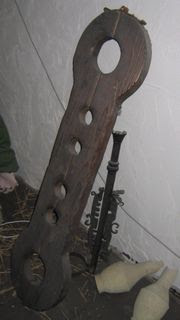The Dunning-Kruger effect is the phenomenon wherein people who have little knowledge tend to think that they know more than they do, while others who have much more knowledge tend to think that they know less. Dunning and Kruger were awarded a 2000 Ig Nobel prize for their work.
 The phenomenon was demonstrated in a series of experiments performed by Justin Kruger and David Dunning, both of Cornell University. Their results were published in the Journal of Personality and Social Psychology in December 1999.
The phenomenon was demonstrated in a series of experiments performed by Justin Kruger and David Dunning, both of Cornell University. Their results were published in the Journal of Personality and Social Psychology in December 1999.
Kruger and Dunning noted a number of previous studies which tend to suggest that in skills as diverse as reading comprehension, operating a motor vehicle, and playing chess or tennis, "ignorance more frequently begets confidence than does knowledge" (as Charles Darwin put it). They hypothesized that with a typical skill which humans may possess in greater or lesser degree,
- Incompetent individuals tend to overestimate their own level of skill.
- Incompetent individuals fail to recognize genuine skill in others.
Incompetent individuals fail to recognize the extremity of their inadequacy.
If they can be trained to substantially improve their own skill level, these individuals can recognize and acknowledge their own previous lack of skill.
They set out to test these hypotheses on human subjects consisting of Cornell undergraduates who were registered in various psychology courses. In a series of studies, Kruger and Dunning examined self-assessment of logical reasoning skills, grammatical skills, and humor. After being shown their test scores, the subjects were again asked to estimate their own rank, whereupon the competent group accurately estimated their rank, while the incompetent group still overestimated their own rank. As Dunning and Kruger noted,
Across four studies, the authors found that participants scoring in the bottom quartile on tests of humor, grammar, and logic grossly overestimated their test performance and ability. Although test scores put them in the 12th percentile, they estimated themselves to be in the 62nd.
Meanwhile, people with true knowledge tended to underestimate their competence. A follow-up study suggests that grossly incompetent students improve both their skill level and their ability to estimate their class rank only after extensive tutoring in the skills they had previously lacked.
Daniel Ames and Lara Kammrath extended this work to sensitivity to others, and the subjects' perception of how sensitive they were. Some more work by Burson Larrick and Joshua Klayman has suggested that the effect is not so obvious and may be due to noise and bias levels.
Source :Wikipedia





